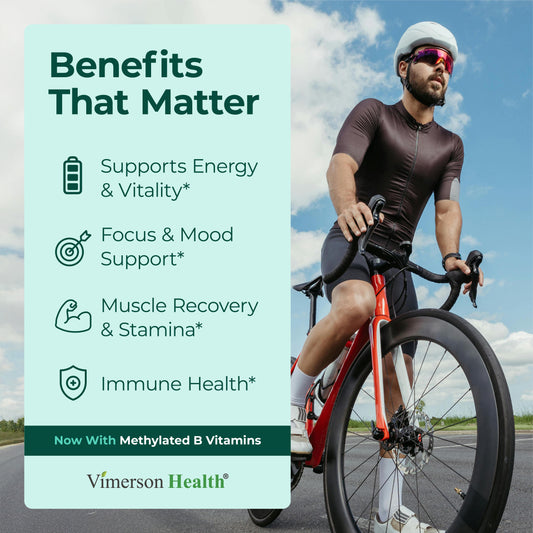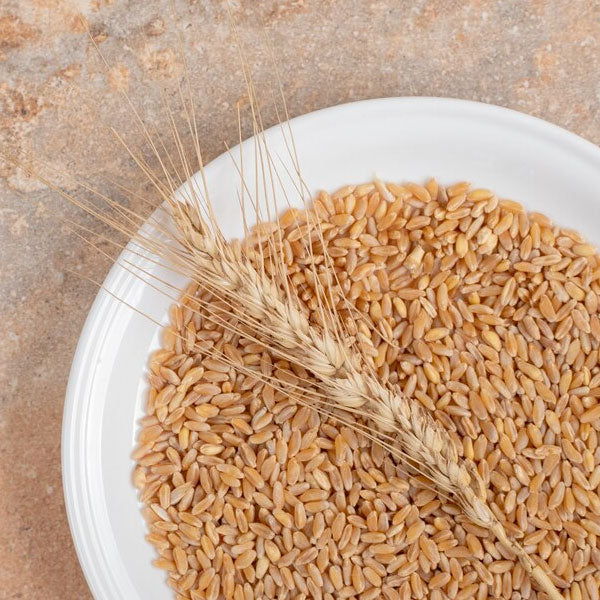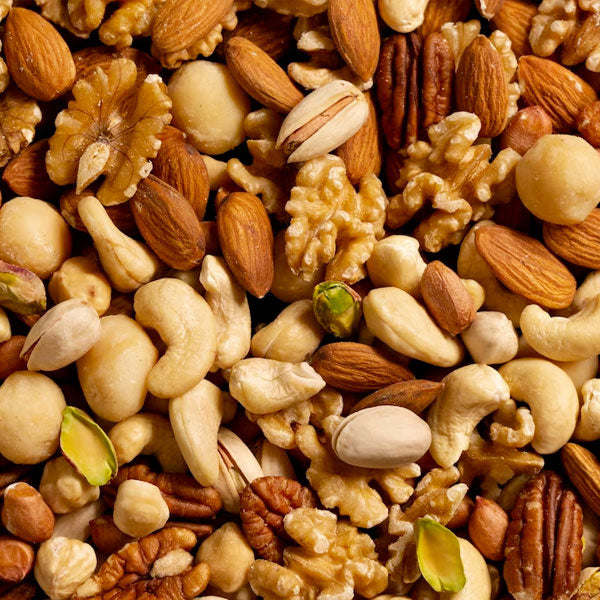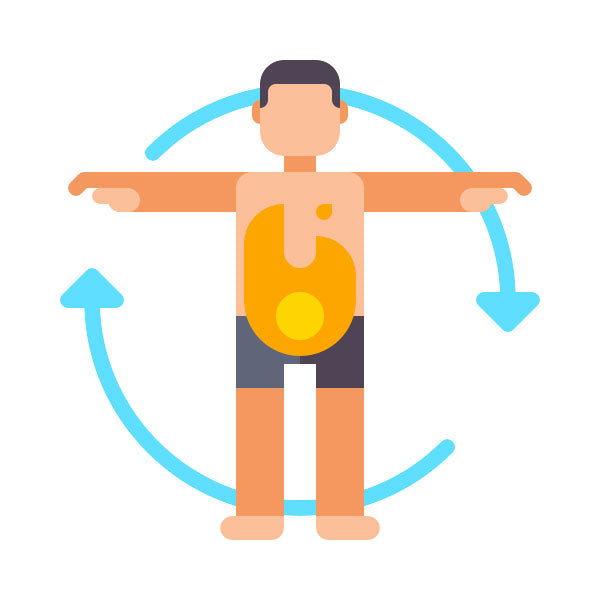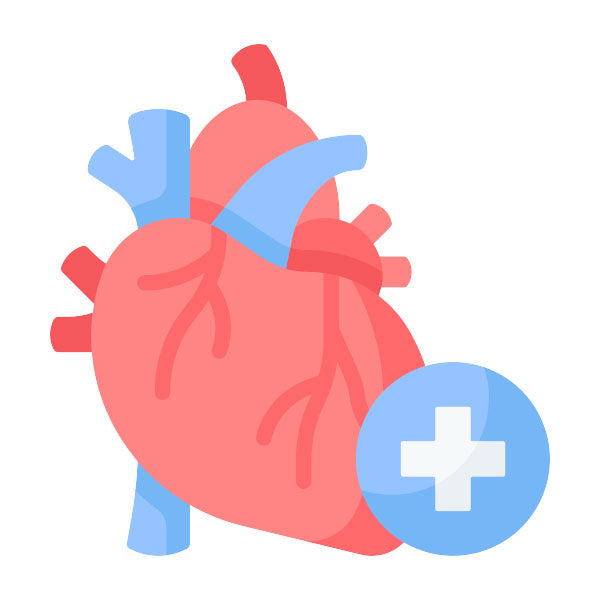WHAT IS VITAMIN B6 AND WHY IS IT ESSENTIAL?
Vitamin B6, also known as pyridoxine, is one of the eight B vitamins essential for human health. It's water-soluble and cannot be stored in the body for extended periods, emphasizing the need for a regular dietary intake. This vitamin plays a pivotal role in various bodily functions, including metabolism, nerve function, and the production of red blood cells.

THE IMPORTANCE OF VITAMIN B6 IN YOUR DIET
Vitamin B6 is instrumental in converting food into energy. It aids in breaking down proteins and ensuring that your body can use them effectively. This is not only crucial for energy production but also for maintaining healthy skin, a well-functioning nervous system, and overall vitality.*
DIETARY SOURCES OF VITAMIN B6: WHERE TO FIND IT
KEY ROLES AND IMPORTANCE OF VITAMIN B6
The advantage of vitamin B6 lies in its multifaceted roles in the body. It's vital for brain development and function, aids in the production of hormones like serotonin and norepinephrine, and is crucial for nerve health. Vitamin B6 function extends to protein metabolism and red blood cell production, underlining the question, 'B6 is for what?'
THE BENEFITS OF VITAMIN B6: EXPLORING ITS ADVANTAGES
VITAMIN B6 AND PREGNANCY: WOMEN'S HEALTH
For women, especially during pregnancy, vitamin B6 is a boon. It aids fetal brain development and is known for alleviating morning sickness, making vitamin B6 for pregnancy highly beneficial.*

VITAMIN B6 FOR MENTAL AND COGNITIVE HEALTH
There is substantial evidence linking vitamin B6 with mental health and cognitive function.* Adequate levels are associated with improved mood and cognitive health, showcasing what vitamin B6 is good for in terms of mental wellness.*
VITAMIN B6 AND ITS SYNERGY WITH OTHER NUTRIENTS

THE ESSENTIAL ROLE OF VITAMIN B6 IN THE BODY
Vitamin B6 (pyridoxine) is pivotal in over 100 enzyme reactions, mainly in protein metabolism. It contributes significantly to the production of neurotransmitters and hemoglobin. Understanding what vitamin B6 does for the body highlights its importance in mental health, immune function, and overall well-being.*
VITAMIN B6 SUPPLEMENTS: DO YOU NEED THEM?
While a balanced diet is typically the best way to ensure adequate Vitamin B6 intake, there are certain situations where supplements might be necessary. For instance, individuals with specific dietary restrictions, such as vegans or those with food allergies, might find it challenging to get enough B6 from food alone. Additionally, certain health conditions, like kidney diseases or malabsorption syndromes, can impair the body's ability to absorb B6, making supplements a practical choice. Older adults, who often experience diminished appetite and dietary variety, might also benefit from Vitamin B6 supplements to maintain optimal levels.
BEST SUPPLEMENT WITH VITAMIN B6 🥇

Vimerson Health
Nootropics Brain Support Supplement - Nootropic Brain Booster for Improved Focus, Concentration & Memory. Brain Nootropic for Brain Health, Mood & Energy Support. Non-GMO. Made in the USA. 60 Capsules









ℹ︎ FREQUENTLY ASKED QUESTIONS ABOUT VITAMIN B6
WHAT IS VITAMIN B6 GOOD FOR?
Vitamin B6, also known as pyridoxine, plays a crucial role in numerous bodily functions. It is vital for maintaining healthy brain function and for the production of neurotransmitters. Vitamin B6 also aids in hemoglobin production, which is essential for transporting oxygen in the blood. Additionally, it contributes to the metabolism of proteins, fats, and carbohydrates, and supports immune function. Adequate intake is especially important during pregnancy for fetal brain development.*
DOES VITAMIN B6 HELP YOU SLEEP?
Vitamin B6, also known as pyridoxine, can help improve sleep quality.* It plays a key role in synthesizing serotonin, a neurotransmitter that influences sleep. Adequate levels of vitamin B6 may aid in the production of melatonin, the hormone responsible for regulating sleep patterns.* Therefore, ensuring sufficient intake of vitamin B6, either through diet or supplements, might contribute to better sleep.* Foods high in B6 include fish, potatoes, and bananas.
IS IT OK TO TAKE VITAMIN B6 EVERYDAY?
Taking vitamin B6 daily is generally considered safe, especially when consumed through a balanced diet. It is vital for several bodily functions, including amino acid metabolism, neurotransmitter synthesis, and red blood cell formation.* However, it's important to adhere to recommended dietary allowances, as excessive intake of vitamin B6 supplements can lead to adverse effects.*
DOES B6 GIVE YOU ENERGY?
Vitamin B6, also known as pyridoxine, plays a crucial role in energy metabolism in the body.* It helps in converting food into energy by aiding in the breakdown of carbohydrates and proteins. While it doesn't directly provide energy like calories do, it supports the biochemical processes that release energy from the nutrients in our diet, thus contributing to overall energy levels.*
CAN I TAKE B12 AND B6 TOGETHER?
Yes, you can take vitamin B6 and vitamin B12 together. These vitamins are part of the B-complex group and work well in combination.* They support various functions in the body, including energy metabolism and red blood cell production.* Taking them together is often more effective, as B vitamins generally complement each other's actions in the body.*
WHAT FOOD IS HIGHEST IN B6?
The food highest in vitamin B6 is typically tuna, particularly yellowfin tuna. Other excellent sources include salmon, turkey, chicken breast, and potatoes. Some other rich sources are bananas, chickpeas, and fortified breakfast cereals. Including these foods in your diet can help ensure adequate intake of vitamin B6, which is vital for various bodily functions including metabolism and brain health.*
WHAT ARE SYMPTOMS OF B6 DEFICIENCY?
Symptoms of vitamin B6 deficiency can include mood changes, such as irritability or stress, as well as confusion and weakened immune function.* Some may experience inflammation of the tongue or sores in the corners of the mouth.* Additionally, a deficiency in B6 can lead to anemia, since this vitamin is vital for creating neurotransmitters and red blood cells.
WHY TAKE B6 AT NIGHT?
Taking vitamin B6 at night may be beneficial due to its role in promoting the production of serotonin, a neurotransmitter that helps regulate sleep patterns.* Additionally, B6 helps in the synthesis of melatonin, the hormone directly involved in controlling the sleep-wake cycle.* Therefore, taking it at night can assist in enhancing the quality of sleep and regulating sleep patterns.*
IS B6 CALMING OR ENERGIZING?
Vitamin B6 is primarily known for its role in energy metabolism, aiding in the conversion of food into energy.* However, it also plays a part in neurotransmitter synthesis, which can impact mood regulation and promote a calming effect, especially in relation to serotonin production.* Therefore, B6 can be both energizing, due to its role in energy metabolism, and calming, through its influence on neurotransmitters.*
SHOULD I TAKE B6 IN THE MORNING OR NIGHT?
Taking Vitamin B6 can be beneficial both in the morning and at night, depending on individual needs.* If you're using it for its energizing effects on metabolism and cognitive function, morning may be best.* However, for its potential benefits in promoting better sleep and relaxation due to its role in neurotransmitter synthesis, taking it at night could be more effective.* It's important to consider your specific health goals when deciding the timing.
* These statements have not been evaluated by the Food and Drug Administration. This product is not intended to diagnose, treat, cure, or prevent any disease.



